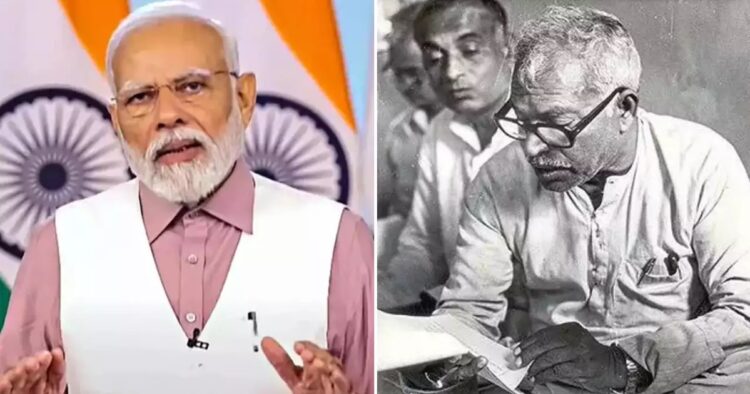In a strategic move, a day after the announcement of Bharat Ratna for the late Bihar CM Karpoori Thakur on his 100th birth anniversary, the BJP has released a video featuring PM Narendra Modi quoting Thakur. In the video, Modi criticizes “opportunist” political leaders close to power, echoing Thakur’s stance that such individuals should not be given shelter or preference, as they could corrupt those in power or their relatives. This move is seen as the BJP’s attempt to leverage Thakur’s critical views against the perceived corruption of opposition leaders in the lead-up to the forthcoming Lok Sabha elections.
The video, shared by UP BJP chief Bhupendra Chaudhary, is also viewed as a part of the BJP’s effort to present a ‘socialist’ narrative, potentially intensifying its rivalry with the Samajwadi Party (SP) in Uttar Pradesh. Political analysts suggest that this move is a calculated strategy to appeal to the most backward groups within the electorally crucial Other Backward Classes (OBCs). The SP, a significant rival in UP, has been actively targeting backward caste groups, counteracting the BJP’s dominant Hindutva ideology.
Karpoori Thakur, a prominent socialist leader, played a crucial role in shaping the political careers of figures like Lalu Prasad Yadav, Ram Bilas Paswan, and Mulayam Singh Yadav. Thakur, belonging to the Nai (barber) community, served as Bihar’s CM twice but never completed a full term. Analysts see the Bharat Ratna for Thakur as a strategic move by the BJP to connect with the most backward sections among the OBCs and counter the opposition’s demand for a caste census.
Thakur’s legacy includes being the first leader to introduce reservations for OBCs even before the Mandal Commission. In 1976, he implemented the Mungeri Lal commission’s recommendations, providing 26% reservation, with 12% for OBCs and 8% for economically backward classes within OBCs. Additionally, 3% each was allocated for women and economically poor individuals among the upper castes. This move solidified Thakur’s standing as a champion for social justice and empowerment.

















Comments